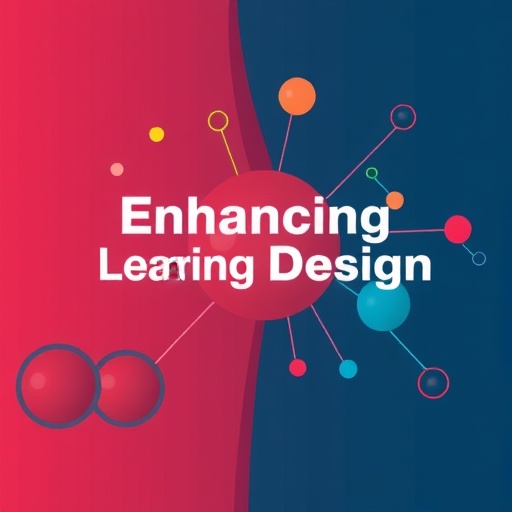In the rapidly evolving landscape of education, the role of learning designers has emerged as a crucial element in shaping effective learning experiences. Kickbusch, Kelly, and Huijser’s upcoming article in Higher Education dissects this role, framing the core expertise of learning designers through strong foundational concepts. As educators grapple with the ongoing shifts towards digital and hybrid learning models, understanding the essential skills and frameworks that underpin effective learning design becomes increasingly vital.
Learning designers are not merely technologists or educational administrators; they are key architects in the learning process. Their insights into psychology, pedagogy, and technology enable them to create environments that enhance learner engagement and achievement. The authors emphasize that the task of a learning designer goes beyond curriculum planning; it involves leveraging a diverse toolkit of skills to offer tailored experiences that cater to varied learner needs and preferences.
Moreover, Kickbusch and her colleagues argue that learning designers must possess a keen understanding of the educational landscape, which is influenced by a myriad of factors including cultural trends, technological advancements, and institutional objectives. This multifaceted perspective allows designers to navigate complexities inherent in modern education systems, thereby fostering meaningful learning experiences. The authors propose that this expertise requires constant adaptation and learning, as the educational context is perpetually evolving.
One of the key aspects addressed in the article is the importance of strong concepts in learning design. The authors propose that these concepts serve as guiding principles that allow learning designers to focus their efforts on the most impactful strategies. By framing their work around these robust ideas, designers can prioritize what truly matters in the educational experience, ensuring that they remain anchored amidst technological distractions and shifts in learner preferences.
In an era where education is becoming increasingly personalized, the understanding of learners as individuals with unique backgrounds and aspirations is paramount. The article points out that effective learning designers must harness data and feedback to create tailored approaches that cater to diverse learning paths. This level of customization not only enhances learner satisfaction but also drives better educational outcomes, demonstrating that a one-size-fits-all approach is no longer viable.
Technological proficiency, although critical, is not the sole factor driving successful learning design. The authors assert that emotional intelligence and interpersonal skills are equally important. Learning designers must engage with both educators and learners, fostering collaboration and trust as they facilitate the learning process. This human-centric approach underscores the need for designers to connect with their audience on various levels, enhancing the overall efficacy of the educational experience.
Understanding the psychology of learning forms another foundational concept explored in the paper. The authors stress that learning designers ought to be familiar with cognitive theories and pedagogical frameworks that underpin how individuals acquire knowledge and skills. By applying these theories, they can craft instructional strategies that resonate with learners and align with cognitive processes, ultimately leading to more effective and lasting learning experiences.
The authors also delve into the significance of assessment in learning design, asserting that assessment should not be seen merely as a tool for grading but rather as an integral component of the learning journey. Formative assessments, feedback mechanisms, and reflection practices are essential elements that aid in both learner motivation and achievement. Learning designers must thus embed these practices into their strategies, ensuring that assessment serves as a driver for ongoing improvement and engagement.
Moreover, the article discusses the relationship between learning design and broader educational policies. With educational institutions facing challenges such as budget constraints and shifts in student demographics, learning designers must be adept at navigating these challenges while remaining aligned with overall institutional goals. This strategic alignment necessitates a deep understanding of educational policy and the ability to advocate for the necessary resources and support needed to implement effective learning design initiatives.
The emergence of online and blended learning further complicates the responsibilities of learning designers. As educational environments shift from brick-and-mortar classrooms to digital platforms, learning designers must be equipped to create engaging and effective online courses. This transition demands not only technological skills but also innovative strategies that ensure the same level of engagement and interaction found in traditional learning environments. The authors encourage designers to adopt a mindset of experimentation, allowing for iterative design processes that accommodate learner feedback and continually refine approaches.
Knowledge sharing among educators is another theme woven throughout the article. The authors advocate for a culture of collaboration where learning designers work not only within their institutions but also engage with wider communities of practice. By sharing insights, best practices, and resources, educators can build a stronger collective knowledge base that drives the evolution of learning design. This interconnectedness highlights the significance of communication and community-building as essential skills for today’s learning designers.
In conclusion, the article by Kickbusch, Kelly, and Huijser makes a compelling case for the nuanced and diverse skill set required of learning designers. It underscores the importance of strong concepts as guiding frameworks, enabling designers to navigate a complex educational landscape that is constantly in flux. The call to action is clear: as education continues to transform, so too must the role of learning designers evolve, adapting their practices to meet the needs of a diverse and dynamic learner population.
The implications of the research are far-reaching. As educational institutions strive for excellence in teaching and learning, equipping learning designers with the right tools and concepts is essential in fostering environments where all learners can thrive. In the face of rapid change and uncertainty, strong, concept-driven learning design can pave the way for future educational success.
Subject of Research: Core expertise of learning designers
Article Title: Framing the core expertise of learning designers through strong concepts.
Article References:
Kickbusch, S., Kelly, N. & Huijser, H. Framing the core expertise of learning designers through strong concepts.
High Educ (2025). https://doi.org/10.1007/s10734-025-01514-z
Image Credits: AI Generated
DOI:
Keywords: Learning Design, Educational Technology, Pedagogy, Assessment, Online Learning, Collaboration, Emotional Intelligence, Personalization, Educational Policy.




